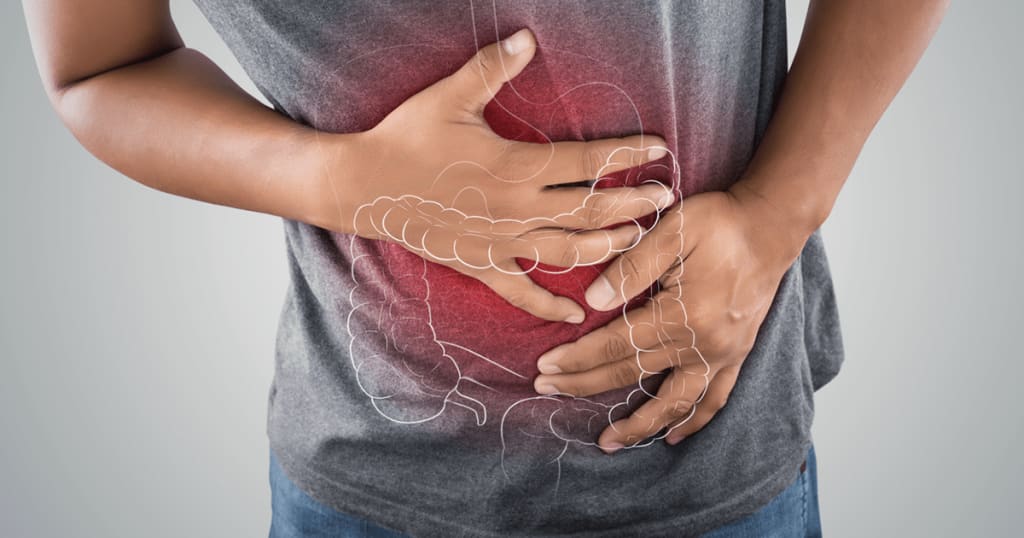Explaining Irritable Bowel Syndrome with Diarrhea (also called IBS-D)
Irritable Bowel Syndrome (IBS) is a commonplace gastrointestinal illness which affects between seven and twenty-one percent of the overall populace.

Irritable Bowel Syndrome (IBS) is a commonplace gastrointestinal illness which affects between seven and twenty-one percent of the overall populace. It’s linked to intestinal pain and discomfort, accompanying with bloating, as well as stool regularity changes and/or the form of the person’s stool. IBS-D is a variety of IBS where the symptoms of intestinal discomfort or bloating occur accompanied by loose bowel movements, which may also happen more often.
What kind of people get IBS-D?
It’s possible for IBS-D to happen to any gender or at any age, although young women are afflicted with it more often than men or senior citizens.
What triggers IBS-D?
IBS-D’s cause is unknown. There possibly are many different reasons. A few of the numerous options discussed in this article.
With a few patients, speedy intestinal contractions occur which brings on discomfort as well as faster stool movement. Because of this, the intestines have a smaller timeframe in which they can absorb the water that’s in the foodstuffs which have been digested. That causes the stools to be watery or loose.
It’s unclear why, but a few patients get IBS-D due to a previous gut infection. Whenever that happens, it’s known as post-infectious IBS. This may continue for several weeks or months, or can last several years after the gut was infected.
Additionally, some believe being sensitive or allergic to particular foods could be the reason some folks develop IBS-D. Numerous patients get signs of IBS-D after they consume particular ingredients found in foods like lactose or gluten. If this is the case, one should avoid food having such ingredients. Regrettably, you can’t find out which food causes your IBS symptoms reliably via allergy testing.
What’s an indication you have IBS-D?
Recurrent intestinal discomfort or pain combined with altered bowel problems are standard for IBS. Folks having with IBS many times say their symptoms were present, in some capacity, for quite a few months or even years. This pain is typically depicted as intestinal cramping that comes and goes, and many times gets better if they poop. With IBS-D, bowel moments are normally very loose as well as happen frequently, at times contain mucus, as well as occur in the daytime when the person is wide awake.
Diarrhea which often wakes you up at night isn’t normal with IBS-D and you ought to discuss it with a physician.
Additionally, belly-bloating happens frequently in folks having IBS-D. Signs not linked to your guts may happen due to IBS-D. This can include sexual problems, irregularity of the menstrual cycle or having an extremely urgent urge to pee, as well as other bodily pains.
How is IBS-D treated?
IBS-D isn’t a threat to the patient’s life. Still, it will affect their quality of life. IBS-D doesn’t have any cure; therefore, the aim of therapy is reducing its symptoms as much as you can.
Dietary treatment: With a few patients who have a mild version of IBS-D, they may be able to control their symptoms totally via changes to their diet and lifestyle. The particular foods which may bring on IBS-D issues are very different for each person.
With other folks, it’s not so simple to determine which foods are bringing on their issues. For these folks, their issues might get better if they eat foods with low amounts of FODMAPs (Fermentable Oligosaccharides, Disaccharides, Monosaccharides And Polyols) or food items with less of a kind of sugar known as fructose (present in a lot of kinds of fruit). Not eating food items believe to bring on more gas, i.e. celery, onions, beans, carrots, wheat, prunes, caffeine or alcohol, can improve symptoms.
Medical treatment: If the patient’s symptoms don’t get better even if they change what they eat, several kinds of medicine exist that can treat it.
Drugs for intestinal pain:
Antispasmodics are a class of medications believed to relax the smooth muscles in the intestines. These are frequently employed for treating IBS. These drugs may help to lessen pain and bloating along with the urgent feeling of having to get to a restroom. Anti-spasmodic drugs which are frequently prescribed consist of hyoscyamine and dicyclomine. Over-the-counter formulations of peppermint oil likewise are seen to produce comparable benefits.
Medicines to help bowels function better:
For individuals with the main symptom of diarrhea, adding fiber supplements many times is the initial treatment proposed. Fiber adds form to stools as well as makes it less watery or loose. Anti-diarrheal drugs, like loperamide, likewise help get rid of diarrhea. These drugs make the gut contractions slow down, thus the intestines get additional time for absorbing water in the foods that have been digested. This reduces the volume of stool as well as its frequency, plus it causes stool to be firmer.
Bile, a material the liver produces, penetrates the top section of the small intestine. The majority of the bile gets reabsorbed while it travels further into the small intestine. Should insufficient bile get reabsorbed prior to reaching the colon (large intestine), it may bring on diarrhea. With a few IBS-D sufferers, a drug which binds the additional bile may be employed to decrease diarrhea.
For folks suffering from IBS-D who still have issues even though they are taking any of the previously talked about medications, there’s additional medical choices, to include antibiotics as well as a drug which is designed to block intestinal pain.
Probiotics
Bacteria are present naturally in humans’ guts, otherwise called intestines, and play a vital part in routine bowel function and health. “Probiotic” goods consist of food or medicines which have live bacteria which might enhance your intestinal health. At times they’re prescribed with an objective of modifying the kinds of intestinal bacteria inside your intestines. This may at times decrease abdominal pain, gas and bloating due to IBS-D. Specialists aren’t certain of the complete benefits of taking probiotics for folks suffering from IBS; and the top beneficial kinds and quantities of probiotic type foods or dietary supplements additionally aren’t well-known.
Yet another method of changing the kinds of gut bacteria are by taking antibiotics. Whilst antibiotics at times deliver relief from the symptoms of IBS, there’s possible risks linked to frequent usage. If you take too many antibiotics, they may not work as well, and the danger of emerging severe infections rises. There are less risks if you take a non-absorbable kind of antibiotic like rifaximin, which is believed to have some benefits when used to treat IBS-D.
Finally, stress as well as anxiety majorly affect IBS-D symptoms. If they are a recognized symptom trigger, you should talk to your doctor about finding a way to lower your anxiety and stress. Physicians may additionally prescribe antidepressant drugs to reduce your symptoms.





Comments
There are no comments for this story
Be the first to respond and start the conversation.